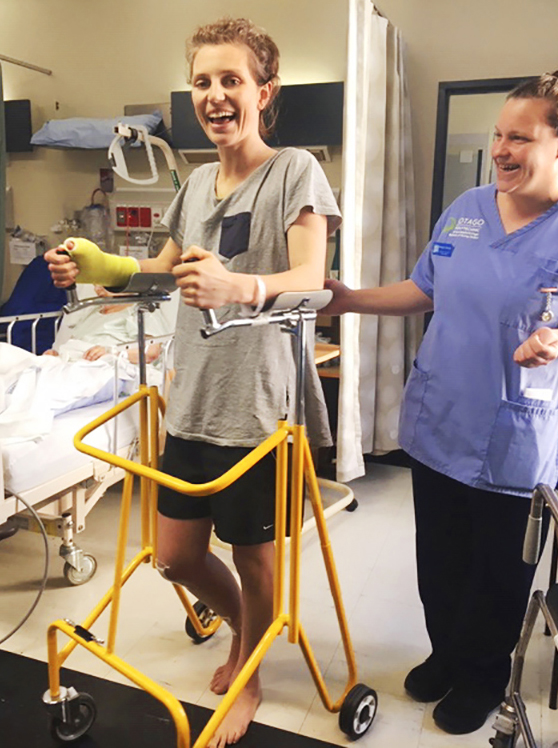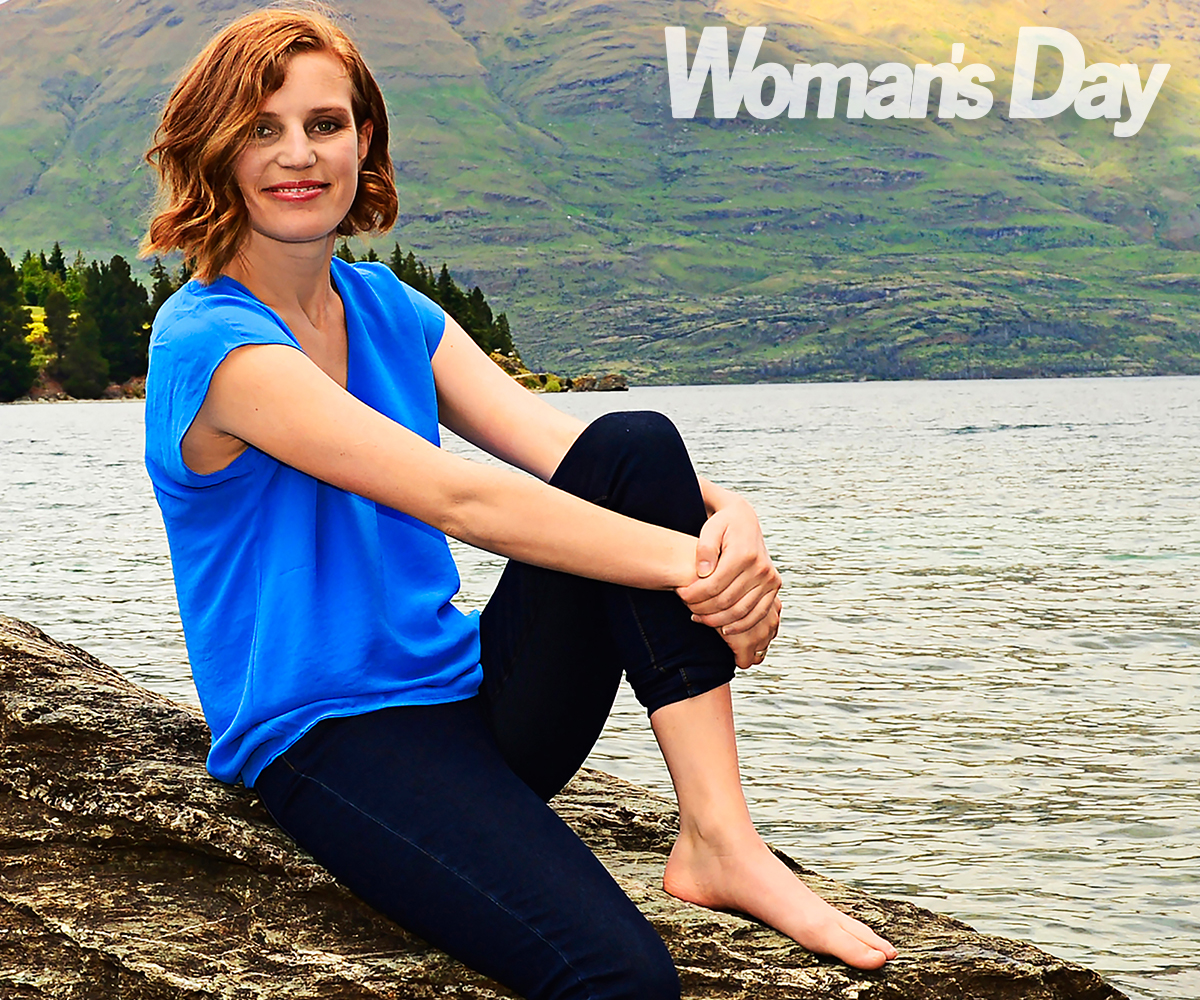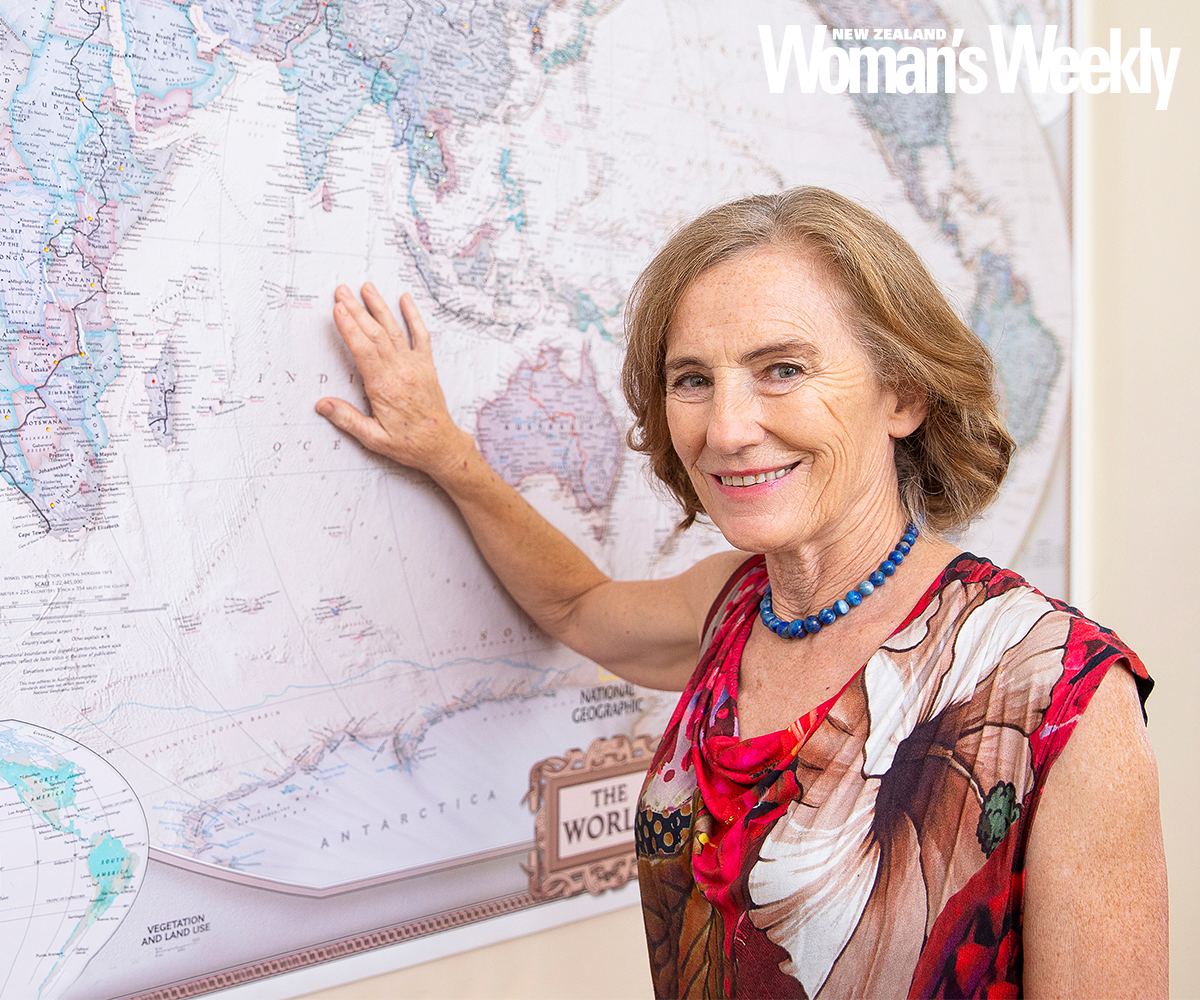There wasn’t an inkling of imminent danger that Hannah Rutherford can recall moments before she plunged to earth, smashing more than half a dozen bones and coming perilously close to death.
Soaring through the air some 20 metres above the ground with a small wing keeping her aloft and skis strapped to her boots, the trainee teacher and part-time bus driver descended out of the Central Otago snow-line over sloping terrain, headed for the distant landing spot.
It would mark the end of an enjoyable spring morning spent speed riding – part skiing, part flying over the snow – from the white-capped mountains at the back of Queenstown to the Cardrona Valley below with boyfriend and fellow adventure- sport enthusiast Blake Round.
It’s also the last memory Hannah has before plummeting into the unforgiving ground, her rigid footwear snapping in half and her skis scattered far away from where her crumpled body was flung.

One of Hannah’s few memories of the accident is being taken to hospital in a rescue helicopter.
Just what happened in those final moments on September 4 remains a mystery. “I don’t actually remember the crash,” Hannah tells Woman’s Day from her home near Lake Wakatipu, where she has spent the past three months recuperating.
“My last memory was potentially 10 seconds before I went in to land. I was feeling fine. There was wind that we weren’t expecting, so it was a little bit bumpy, but I remember not being scared or worried about it. All we know is my wing did a sudden left turn.”
Using a crutch to get about after breaking eight bones – two vertebrae, two in her right leg, her right hip socket, right thumb and two ribs, as well as a split liver and head injury – her body bears large scars from nearly nine hours of emergency surgery to insert rods and wires to repair her wrecked skeleton.
The plucky Aussie-born 29-year-old grew up on a farm near Bathurst, New South Wales, and came to Queenstown for rock climbing six years ago. She obtained her paragliding licence in 2013 after falling for the sport and her instructor, and she’s all too aware that her accident could have been so much worse.
“It was a bad crash, but I’m walking. Surviving is one thing, but the doctors have told me I should be getting back to full activity. That’s amazing as well!”
Blake, 31, a professional paragliding pilot, admits it was an awful moment when his partner of five years dropped out of view.
“I’d landed just ahead of her and turned around to watch her come in to land, but she had disappeared from my sight. I disconnected my gear and ran across to where she would be.”
Fortunately for the couple, a search-and-rescue specialist happened to see Hannah strike trouble and was also able to come to her aid within minutes. A rescue helicopter was called to fly her to hospital within the hour.
“She was conscious but confused,” recalls Blake.
“I have a picture memory of going into the helicopter, a picture memory of doing an MRI scan, but not much more until three or four days later,” adds Hannah, who had attended a speed-riding camp at Arthur’s Pass a week prior to the crash.

After weeks of recovery, the avid athlete is walking again.
While six weeks of total bed rest has meant the head injury has healed, Hannah is remarkably upbeat for a woman who spends much of her life outdoors.
“I’m a little bit surprised how well I’ve taken it. Being an active person when you have an injury, you expect to get cabin fever and be frustrated, but I’m not.
“I’m feeling great. Sometimes three months seems like a long time, but to me, it’s gone by really quickly. Every day, I have a win. I’ll be able to pick something up or walk a little further. I don’t think I’ve actually been upset at all. I’ve just embraced lazy life,” she laughs.
“While I’ve done my best to find out how the accident happened and talked about it so I can understand as much as possible, I haven’t dwelled on it. It’s about, ‘How do I now get better?'”

Blake has been by Hannah’s side throughout her recovery.
Thankful to be on her feet again and even able to walk short distances unaided, Hannah is overwhelmed by the tremendous support shown from her adopted Queenstown community and paragliding family the world over. But she reserves most praise for her leading man.
“Blake has been amazing. He’s been at my side since the very beginning, he came to Dunedin and has done everything for me once we came home,” she smiles.
With her focus firmly centred on rehabilitation, Hannah’s also keen to make sure she finishes her primary teaching degree, which was interrupted midway through the final semester with only four assignments and a school placement to go.
But even with her body scarred and battered from an accident she was lucky to walk away from, it’s done little to curb Hannah’s enthusiasm for the aerial adrenaline-fuelled sport she revels in and she plans to get airborne as soon as she’s stronger.
“I’ll just take it easy to start with and I’ll definitely only be paragliding initially, but it will be good to get back up in the sky. It will be really, really lovely.”


